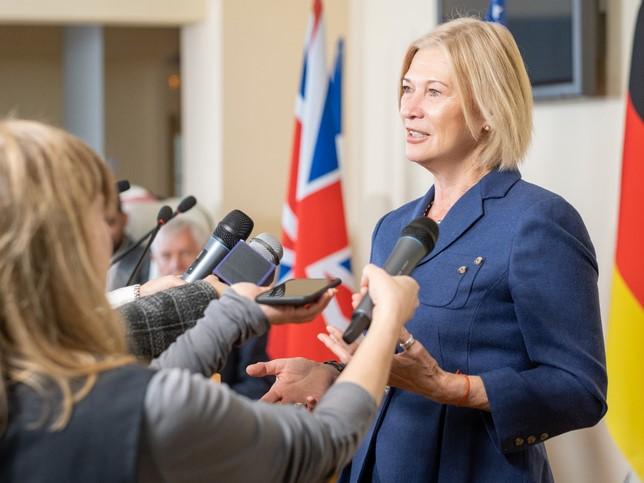
What can the new government do to strengthen academic-policy engagement?

In the case of the evolving relationship between academia and the policy world, one can still point to significant developments over the past five years. These include the emergence of new mechanisms such as:
- Areas of research interest (ARIs)
- The Government Office for Science (GOS) navigator tool
- Various policy profession initiatives
- Large funder investments in place-based policymaking and connectivity in the evidence-policy landscape
- Myriad examples of the role research expertise has played during and after the pandemic.
The Universities Policy Engagement Network (UPEN) asked our membership of more than 110 higher education institutions across all four UK nations what the new government could and should do to strengthen evidence-informed policy engagement. Five themes emerged from 36 responses.
Coordination
The UK benefits from “excellent structures” to support engagement with evidence and expertise, however, silos continue to persist. There is a shared perception that the lack of stable docking points is exacerbated by an HE sector within which participants prioritise institutional advantage and have internalised competition over collaboration. A key priority for us, over the next two to three years, will be to normalise a more collaborative approach to informing public policy with evidence and expertise through targeted approaches to embedding connectivity across the ecosystem. Our members have repeatedly emphasised the importance of such approaches, including:
- More cross-departmental collaboration around cross-cutting policy issues and evidence needs
- Support in working with interdisciplinarity and trans-disciplinarity evidence bases, alongside a funding and support structure to encourage academic engagement
- A joined-up approach to communicating evidence needs (such as ARIs, colleges of experts and research showcase events).
Capacity
Recent years have seen a noticeable increase in efforts and investments to strengthen and build capacity for policy engagement within both universities and localities, including the creation of UPEN itself. This has been mirrored by an upsurge in dedicated higher education institution knowledge brokerage units and policy shops designed to sustain and build upon existing capacity. To build on these ongoing developments, our members also called for:
- Continuing dedicated and ring-fenced investment in academic-policy engagement infrastructure, such as PSF, offered on longer-term funding cycles
- Strengthening evidence use infrastructure within government, through more visible and better resourced points of contact
- Targeted resources for devolved and local decision makers, to enhance capacity across all regions and nations of the UK.
Recognition
The use and recognition of academic contributions to policymaking were, unsurprisingly, key areas of focus for our membership, including but not limited to the need for recognition in relation to the production of impact case studies for the Research Excellence Framework. Members also called for greater transparency and acknowledgement of how research is used once submitted to consultations, inquiries and ARIs, alongside clearer communication of the decision processes that frame research use.
- Resource collection: How can higher education make its case amid political change?
- THE podcast: what does the UK election mean for higher education?
- ‘It falls to us to tell our universities’ stories. Here’s how’
There was also a plea for government to value the different forms and varieties of evidence and expertise that are offered across the sector to generate increased buy-in for the idea that R&D is central to the process of developing policies that work. Similarly, it was suggested that government should be careful in how “evidence failure” is presented when policies are perceived or presented as unsuccessful, because this has knock-on effects around wider public trust in science and research. This requires:
- Further consideration of how government and Parliament recognise written and oral evidence used to develop and implement policy, as well as the researchers engaged in policy processes
- Building strong incentives for institutions and individual researchers to engage with government, working with them to encourage further collaborative engagement.
Valuing a diversity of evidence
Overall, members were keen to encourage a reframing of the ways in which evidence is understood and navigated within public policymaking. Crucially, this includes building and nurturing the skills and confidence of civil servants and policymakers to deploy evidence based on different methodologies.
Some of these asks included:
- Moving away from an overly quantitative approach, or at least one that views economic models as the sine qua non of all policy formulation and is comfortable embracing mixed methodology approaches – a model championed by UPEN’s own Arts and Humanities subcommittee, and within the British Academy’s SHAPE approach to national policy challenges
- Building capacity for decision makers to engage with a diversity of evidence (such as the arts and humanities and research working with lived experience) across all cross-cutting policy issues.
Visibility of academic-policy engagement opportunities
Finally, the need to craft initiatives and opportunities to connect with and inform public policy, and promote these equitably, continues to be a key priority for our members. Our newsletter is consistently cited as a useful mechanism for rendering academic-policy engagement more accessible to a wider range of research and professional staff across the HE sector. Alongside this, members called for:
- Increased visibility of civil servants working in particular policy areas, including publishing job titles, key responsibilities and contact details (even if to a shared email)
- The need to embed an improved understanding of how ministers and governments make policy decisions into HE capability-building initiatives
- The regular publishing and updating of ARIs, with opportunities for the academic community to engage in their co-production and be supported (and funded) in delivering evidence and interacting with them. Indeed, UPEN events, which have presented with various department ARIs, have regularly seen high attendance and engagement, with feedback showing the value of the opportunity for academics to engage directly with ARI teams
- Driving more engagement and coproduction with the UK research community on parliamentary policy issues and scrutiny of government
- An improvement in guidance for disciplines that do not traditionally engage, that includes both tips and tricks, as well as examples of successful engagement.
There will clearly be many opportunities to engage as the new administration finds its feet and seeks to develop an evidence base to support the delivery programmes that will underpin its five missions. UPEN looks forward to playing an active role in supporting the government achieve its R&D ambitions, as well as supporting universities as they continue to build their policy engagement functions, seek to prove their value to local, regional and national renewal and build a more connected and collaborative UK research community.
Sarah Chaytor, Chris Hewson and Andy Brown are co-chairs and Laura Bea is network manager at UPEN.
If you would like advice and insight from academics and university staff delivered direct to your inbox each week, sign up for the Campus newsletter.


